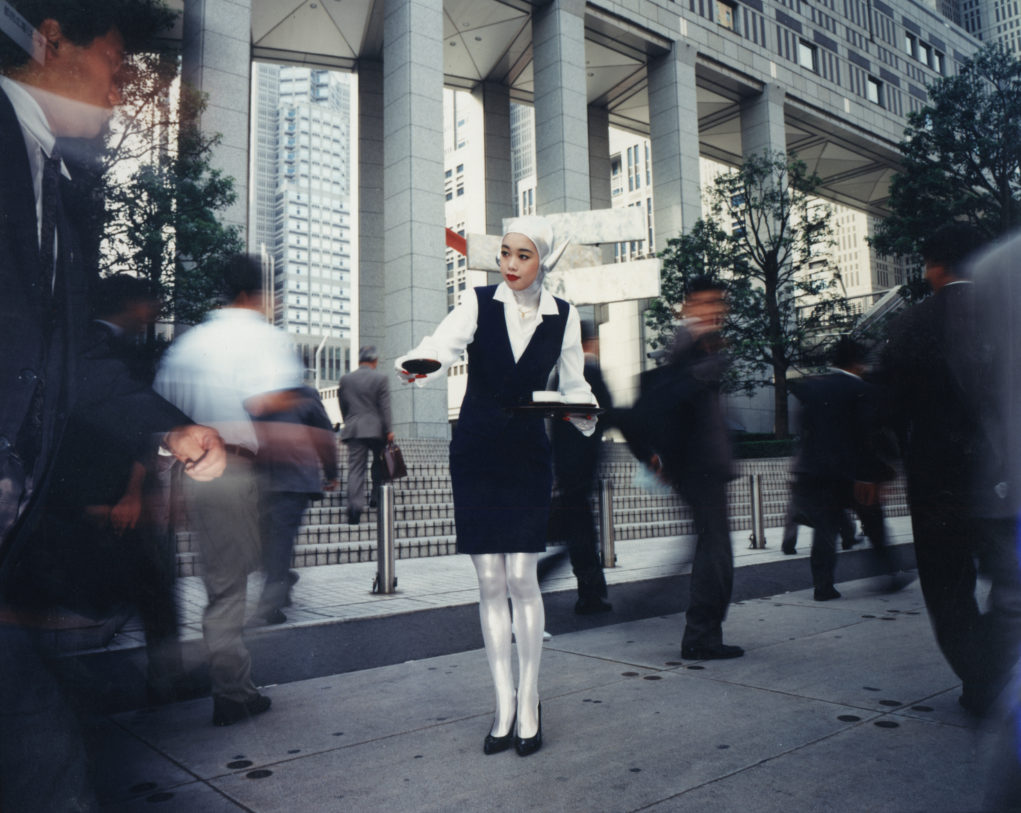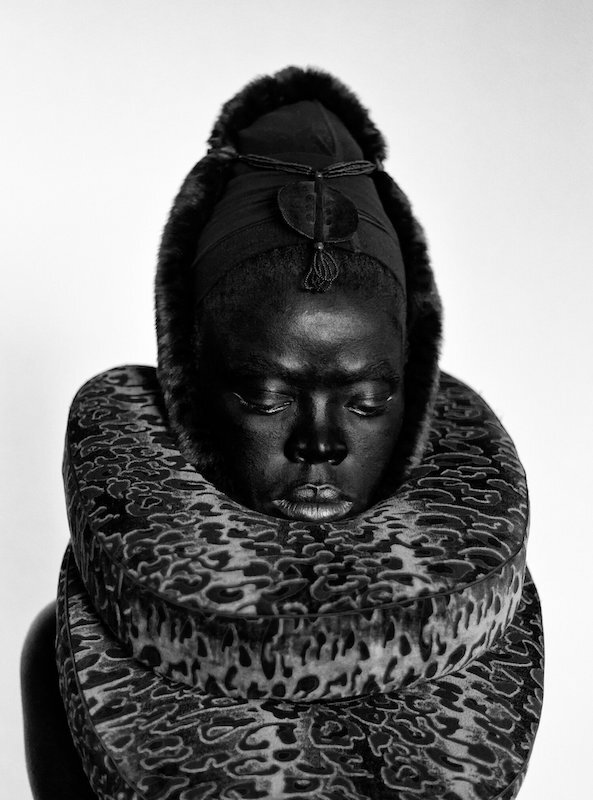From Our Archives: Catherine Opie
Catherine Opie, “Self-Portrait/Nursing,” 2004
This interview was featured in the second volume of our 6th Issue: NUDE + NAKED + MORE
Andrea Blanch: How does hetero-normativity, and the queer resistance to it, sculpt your concepts of community?
Catherine Opie: I think that in some ways, the queer resistance is always bringing focus to the queer community. My deciding to use it as a subject is about compassion and creating a history. When I started making the earlier portraits, I liter- ally thought, “Okay, I’m fucked, I’m not going to be able to ever get a teaching job, never going to be able to show in any galleries, the work is going to be too radical.” The opposite happened. Don’t question, make what you feel is innately really important to you.
Hetero-normativity is lessening now. My 11-year old son can sit and watch Glee and watch The New Normal and Modern family and have representations of gay and lesbian families on TV, which is literally like a miracle to me. Opinion is changing. hetero-normativity is not the new normal! we are becoming more open as a society in relationship to it. For the most part, everybody has somebody that they know who is a member of the LGBT community. It would be very strange to meet someone who has never met a gay person at this point, which you couldn’t say 30 years ago because people weren’t out.
Catherine Opie “Idexa,” 2012
Andrea: Who is another high profile person that has also contributed to that?
Catherine: Robert Mapplethorpe is huge. So important. Those culture wars, for it to go all the way to court in Cincinnati and for the images not to be removed from the museum, that was huge. That was really huge. There were other people whose work was only known within the community.
Keith haring was as well. Act Up and Queer Nation did an enormous amount in relationship to the politics of vis- ibility and grand theory. That created an ability for me, as somebody who was a part of those movements, to decide to go ahead and move my work away from only doing work like nude topograph[ies] to doing work on my own community. It was too important to be a part of this discourse in that moment of time.
Andrea: Do you think women artists have a responsibility with their art to make art that doesn’t procure more of the male gaze?
Catherine: There is a big difference between the way a woman looks at one of my photographs than Greg crewdson’s pho- tographs. I love Greg’s photographs, but they are of the vacant woman staring off that embodies nothing. My women embody space, they look back at you, they look off at you. I’ve always treated women in relationship to holding a sort of power within the frame and a lot of male photographers photograph the woman only as object. My portraits are never about objects, they are always still about a person. I never think of the body as an object.
Catherine Opie, “Self-Portrait/Pervert,” 1994
Andrea: As you’ve evolved through the S&M culture through surfing and football, the concept of communal violent play still remains in your art. Do you see that as a vital component of our society?
Catherine: The S&M community was a very important part of my life through the 90s and I chose to photograph it because I didn’t like the way it was being represented. Often, when I make things, it is in relationship to creating a repre- sentation of that [and] what I feel needs to be in the world.
I’m just fortunate enough that it actually got to go out in the world. The other aspects of community are in rela- tionship to the ideas of quality. Why would I give myself permission to photograph my own community, but not actually go to the site of a high school football field? There’s no contradiction within that, I have every right to bear witness to any group of people as long as it is done with humanity in mind and also humility. I have always felt that I have never been tied down to a singular identity, so why should my work? We are much more complex as people in relation to our thoughts and politics and how we go about the world. Why should the work not also have that breadth?
Catherine Opie, (Above) “David” (Right) “Diana,” 1994
Andrea: What about nudes in general? What do you think the nude informs us of?
Catherine: With David, his body is so unbelievably beautiful. when I did the back of Diana, it is just her swimsuit marks. I like skin. I never think of nudes, I just think of bodies, and I think of skin and as a substance that is part of our being. Nudes to me imply this classical sense or the idea of the nude in relationship to the history of photography, like Bill Brandt titling them ‘Nudes’. I never think about it that way, I think about it as skin.
Andrea: If I say the word nude, what comes to mind?
Catherine: Classical Edward weston photographs and Brandt and this kind of male observation of the female body, in terms of nudes.
Catherine Opie, (Left) “Fisting,” (Above) “Pearl/Necklace (from Trojan Whore)” 2002
Andrea: And if I say the word naked?
Catherine: Naked for me is just wearing no clothing and baring your body to the world.
Andrea: How does living out essentially the idyllic American domestic life make you reflect on your own work?
Catherine: I am very happy with my life. I have an amazing relationship, and we have two amazing kids. I do not ever think that I have everything that I want, but I do know that I’m very fortunate to have a public that has followed my work for over twenty years now, and that I have an amazing support system around me, and an incredible partnership with an amazing person who’s also a brilliant artist.
I have worked incredibly hard. I have really worked hard at this. I travel a lot. I think a lot. I try to influence. I try to be a really caring and responsible professor. I don’t take my status for granted in this system. I think that it could all collapse on me at any moment. I try to keep pushing the work forward, not only for myself, but also for the audience that has followed me. I feel a sense of responsibility to that.
I think people think that the idealist American dream is that at some point you can just rely on your position of what you’ve created for yourself. I don’t think that I, as a woman artist, can rely on that to be honest. I don’t think that women artists can rely on it in the same way.
See the full interview in the second volume of our 6th Issue: NUDE + NAKED + MORE







